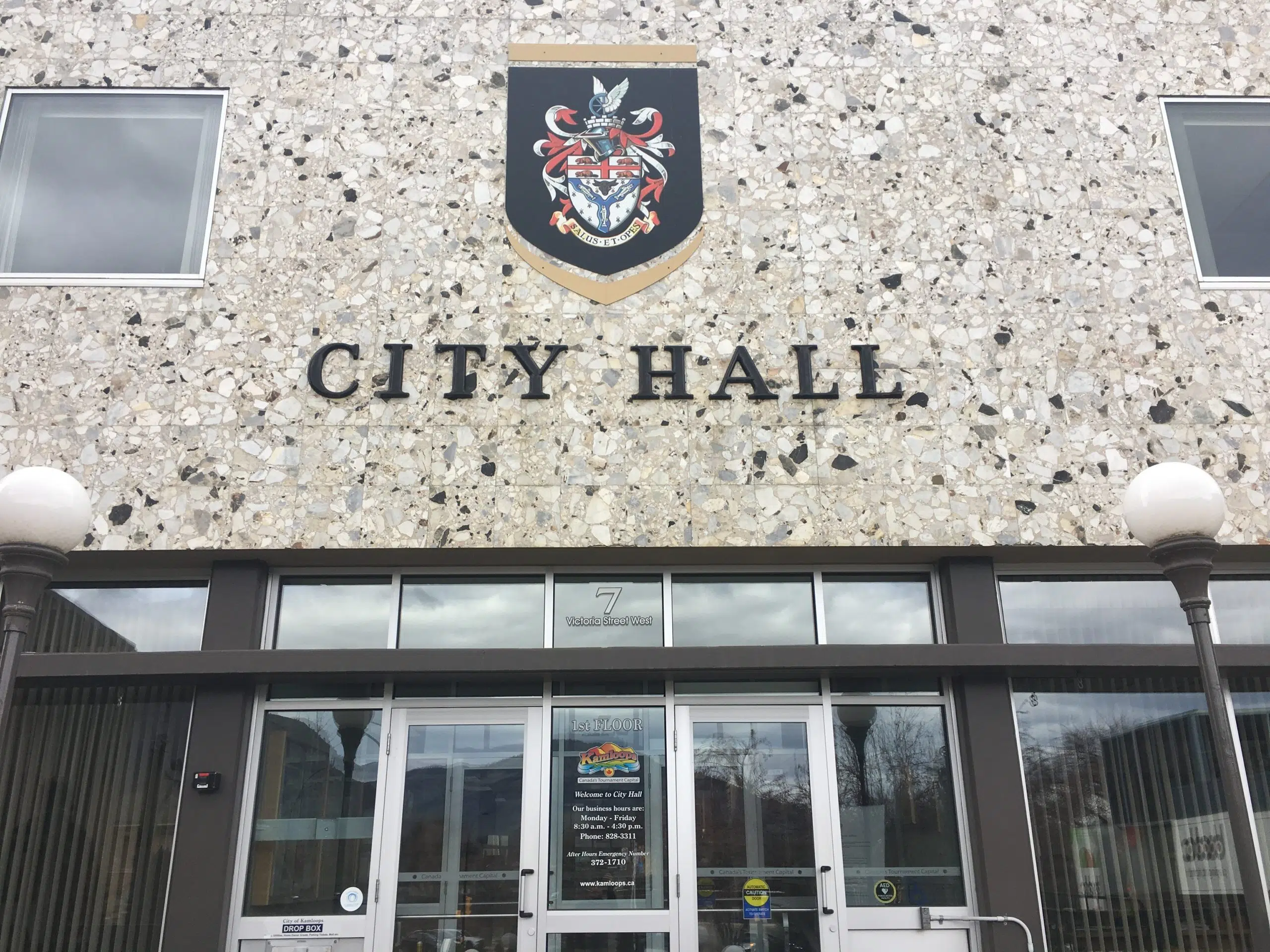
As the Code of Conduct violation process against Councillor Bill Sarai is most likely getting underway for his admitted breach, that effort is going to add to the already quarter-million dollar tab local taxpayers are fronting.
Updated figures from the Corporate Services division at Kamloops City Hall show $254,848.01 has been spent — as of October 11th — to investigate and make recommendations on 21 different Code of Conduct complaints filed since they became available May 9, 2023.
No new Code of Conduct complaints are believed to have been filed between October 11th and December 3rd, when Councillor Sarai made his public admission he violated the Council Code of Conduct Bylaw.
Corporate Services would neither confirm or deny any Code of Conduct complaint against Sarai, as the process is meant to remain behind closed doors until its complete, with Council authorization needed to release any information from an investigation.
Expectations are one of his fellow councillors has, or will, file a Code of Conduct complaint against Sarai to begin the process, with the ruling and any sanctions which may come along with it expected sometime in early 2025.
Complaints process long and costly
Under the Council Code of Conduct Bylaw, once a complaint is put forward in writing a third-party investigator has to be chosen by the City’s Legal Department, who then firstly reviews whether the complaint is not “frivolous, vexatious, not made in good faith, or not made with respect to a breach of [the] Bylaw,” according to the statutes.
If it’s considered to be without merit, it’s referred back to Council, which can then decide to reject or suspend the complaint based on the recommendation of the investigator, or advance the process to the next level.
Those complaints which are deemed worthy of further scrutiny are put into “preliminary assessment,” where the investigator first determines if the issue can be settled through an “informal resolution” process.
The Code of Conduct Bylaw recommends most cases be resolved “informally,” which allows the investigator to make their own ruling, as well as recommendations on the remedies to resolve the complaint.
If the investigator feels its unlikely the “informal” approach would provide a resolution, the Code of Conduct complaint is put into “formal resolution” procedures.
“Formal resolution” requires the investigator to conduct interviews, take depositions and produce a detailed report to Council, which is supposed to be submitted within 90 days, though Council can authorize an extra 30 day window for more complex cases.
The “formal” process, while more thorough and exhaustive, is also more costly due to the time required to conclude it.
Once the “formal” probe is done, it then goes before a closed session of Council to vote on whether to accept the results and decide whether to move forward with any subsequent sanctions.
There are a list of 14 options Council can choose from to mete out punishment, or “remedies” as they’re referred in the Bylaw, for breaking the Code of Conduct.

Mayor Reid Hamer-Jackson in a sit-down interview with Radio NL after being provided a copy of the Integrity Report/via Paul James
They include the issuing of letters of reprimand and apology, formal censure, the removal from internal committees, as well as the loss of pay and other financial benefits — as has been the case for Mayor Reid Hamer-Jackson.
Council can also impose other sanctions based on the recommendation of the investigator, provided they fall into areas where Council has jurisdiction.
In the most serious cases, where legal violations are suspected, Council does have the ability to refer the investigation to police and/or prosecutors.
Code of Conduct born of rising conflict
Spawned mostly from the upheaval in Surrey’s local politics around its controversial police transition, the BC government passed legislation in late 2021 requiring all new municipal governments to adopt, or update, their own Code of Conduct within 6 months of their first post-election meeting, or provide a good reason why they couldn’t.
The previous Kamloops Council, which included councillors Bill Sarai and Dale Bass, adopted its own Code of Conduct bylaw just before it dissolved in the summer of 2022 in the lead up to the November municipal election.
Using that as the template, the current Council unanimously approved an updated version of the previous Code, which now includes a list of “remedies” for violations.
It’s passing on May 9th came as tensions between the Mayor and the rest of Council were already heightened, and led to the first two Code of Conduct complaints being submitted by Councillor Katie Neustaeter against Mayor Reid Hamer-Jackson.

Kamloops councillors preparing to hold a news conference on March 17,2023 (Photo via Paul James)
One accused Hamer-Jackson “making false or misleading statements” in the aftermath of Council’s March 17, 2023 news conference where — with Neustaeter as Council spokesperson — accused the Mayor of “chaotic and unpredictable behavior” as he was attempting to realign Council’s committee structure.
A second complaint against Hamer-Jackson, filed at the same time, accused the Mayor of making sexist and degrading statements through his then-lawyer.
Hamer-Jackson was found in breach of the Bylaw for “false or misleading statements,” while deemed not responsible for the comments of his lawyer, which dismissed the second complaint.
Those two investigations cost taxpayers a combined $8,904, and set the stage for the following 20 Code of Conduct complaints.
Public banned from Code of Conduct filings
The public schism between the Mayor and the rest of Council bled into the public gallery as well.

Official councillor photo of Dennis Walsh/via City of Kamloops
Three-term Kamloops Councillor Dennis Walsh, who decided not to run for a fourth term in 2022, later revealed he filed four separate Code of Conduct complaints against members of Council.
While exact details of the complaints have not been laid out, a summary of the filings shows each of them claimed the accused breached five to seven subsections of the Bylaw, requiring the investigator to examine each of those allegations.
In the end, two of the four complaints were summarily dismissed.
A third did go through a formal investigation, subsequently clearing Councillor Katie Neustaeter of any wrongdoing after being accused of misleading the public about the lead-up to the March 17th public statement by Council.
A portion of a fourth complaint by Walsh also went the distance, and later determined comments made by Councillor Bill Sarai during an open Council session did not breach the Code of Conduct Bylaw.
Those four claims filed by Walsh cost taxpayers a total of $66,411.46.
It was those costs which ultimately prompted the CAO and the Corporate Services division to recommend amendments to the Code of Conduct Bylaw to only allow complaints from members of the public who are on council committees or working groups, as well as members of Council and City staff.
The amendments were approved by Kamloops Council on August 29th, with only the Mayor voting to oppose them.
“I really think that we’re making a big mistake at this point, and limiting the public from giving them more avenues to put complaints forward. We looked at it very carefully just months ago, we looked at it very carefully,” said the Mayor at the time. “To me it’s shocking that we would try to eliminate them.”
The amendments to the Code of Conduct capped the number of complaints at six.
Councillor Bass takes over filings

Kamloops Councillor Dale Bass/via City of Kamloops
Through the summer and fall of 2023, Code of Conduct complaints would continue to be submitted and directed at Mayor Reid Hamer-Jackson.
Councillor Dale Bass would file most of the remaining complaints on behalf of the rest of Council and City staff against Hamer-Jackson for various allegations.
Of the twelve complaints filed by Bass, seven of them were later withdrawn, with those filed on behalf of City staff being taken back over perceived fears of direct or indirect retaliation.
Two of the complaints — as of October 11th — had not finished going through the review process.
One which did make it to a final report found the Mayor was in breach of the Bylaw for releasing portions of the Integrity Group Report, also known as the Honcharuck report, to the media.
That investigation cost $46,413.26 and saw the investigator issue a warning in the final report, suggesting Hamer-Jackson “is likely to continue to disclose confidential documents either through lack of care or simply when it suits him.”
That report is believed to be the catalyst for Council’s second cut to the Mayor’s salary.
Calls for change being discussed
Despite the costs for investigating alleged Code of Conduct violations continuing to rise, Councillor Dale Bass says it needs to be available.
“If we don’t address the issues that we see when the Code of Conduct is being breached, or when the Community Charter is being breached, or when the privacy law is being breached, or when the FIPPA laws are being breached, then all we’re doing is enabling that kind of behavior to continue,” argued Bass.
While Code of Conduct investigations were once done internally by senior staff at Kamloops City Hall, Bass contends that option — while less costly — isn’t a fit for this Council.
“You have to have an independent person looking at what’s going on,” said Bass. “You can’t have council judging each other. You can’t have staff doing it. You have to bring in someone, and it has to be a skilled investigator.”
The discord among Kamloops Council is not unprecedented, with other communities in BC — such as Harrison Hot Springs — going through their own turmoil.
What is not clear is just how fractious things are in Kamloops compared with the 187 other municipalities in the province.
Kelowna, as an example, saw four Code of Conduct complaints submitted from the date Kelowna’s Bylaw was adopted, September 11th, 2023 and September 30th, 2024.
All four were from members of the public, whose submissions went through an initial review by Kelowna’s City Manager and Clerk.
Kelowna’s Bylaw allows staff to do a first pass of the complaint to determine if it meets the criteria for a formal probe.
If it does, staff would then recommend it be passed on to an independent investigator.
None of the four complaints in Kelowna made it past the initial stage.
While each community’s Code of Conduct is tailored to its own needs and concerns, the provincial government has maintained a uniform, hands-off position on known discord in Kamloops and elsewhere.

New Municipal Affairs and Housing Minister Ravi Kahlon/via Facebook
“People should be able to trust their elected officials and deserve accountability from elected officials and how they conduct themselves with colleagues, staff and the public,” said the Ministry in a statement to Radio NL inquiring about Code of Conduct filings and costs in other BC communities. “Together with our local government partners, the Province has taken steps to support responsible conduct, such as code of conduct legislation, new resource materials and online education modules for elected officials.”
“The Province does not track or record breaches of codes of conduct,” concluded the Ministry statement. “Individual local governments track their own breaches and are best equipped to answer questions about them.”
The tensions being documented within certain communities has prompted the Union of BC Municipalities to take up the question, with a discussion paper being circulated in early September, which includes debate over whether a provincial-level approach might be an answer.
It’s not clear at this point if the new Minister of Municipal Affairs and Housing, Ravi Kahlon, intends to dive into these issues as he takes on the expanded portfolio.













